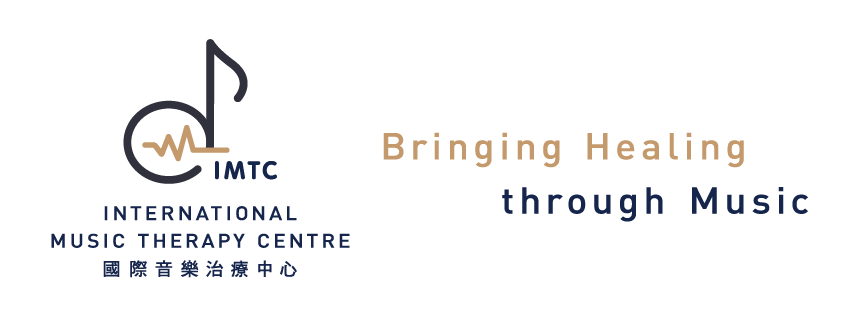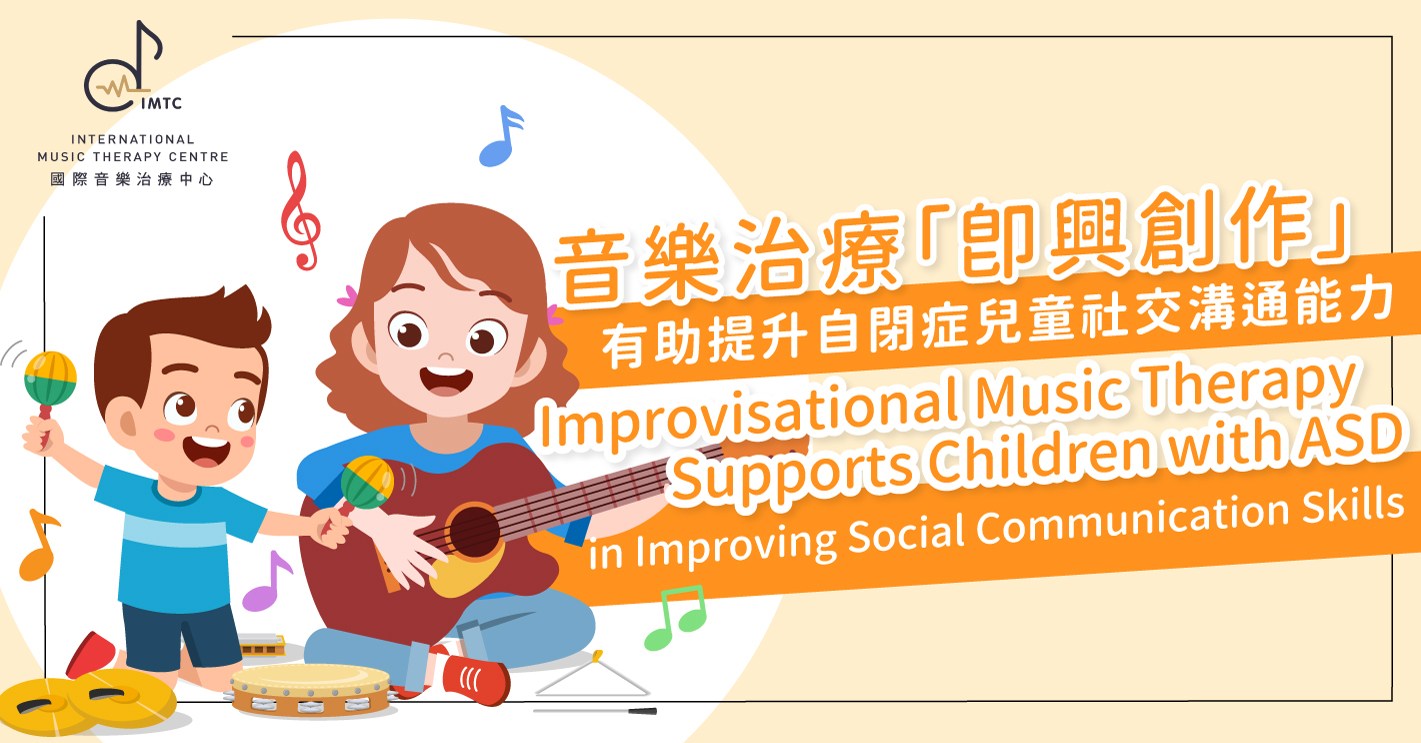Improvisational Music Therapy Supports Children with ASD in Improving Social Communication Skills
Some of the children who are diagnosed with autism spectrum disorders (ASD) are experiencing different social and communication deficits. Improvisation is one of the skills used in music therapy sessions. It has a significant influence on increasing social engagement and interaction for children with ASD. Geretsegger et al. study suggested that improvisational music therapy allows therapists to follow the child’s focus of attention, behaviors, and interests to facilitate growth in the child’s social communicative skills (Geretsegger et al., 2015). First, improvisation can allow therapists to be attuned with a child’s emotions (Mössler, Schmid, Aßmus, Fusar‑Poli, & Gold, 2020). Then, through music co-creation using different musical elements, therapists are able to communicate and social interact with the child.
Carpente’s study also supported that improvisational music therapy is effective for improving social skills of children with ASD (Carpente, 2017). These effectiveness also expanded and generalized to child’s toy play context where in an environment without music therapy intervention. Carpente then further included a case study of Elaine, an 8-year-old child with ASD who participated in 13 weeks of 15 to 30 minutes, twice per week improvisational music therapy sessions. Before the music therapy session, Elaine appeared to be easily deregulated and unengaged. When engaged in instrumental playing, she exhibited challenges maintaining engagement and relatedness, as well as difficulty adapting to dynamic and tempo changes (Carpente, 2017). After improvisational music therapy, Elaine was recorded to have these improvements:
- Significant increased in the ability to self regulate
- Had extra responses, such as eye glance towards therapists, had non-verbal vocalization, and had facial expression, such as smiling
- Abled to initiate and lead play interaction
- Had stained joint attention and continuous flow of back and forth interaction
Therefore, these studies showed that improvisational music therapy allows participants to co-create music with peers and music therapists, and is effective for improving social communication skills of children with ASD.
Reference
Carpente, J. (2017). Investigating the Effectiveness of a Developmental, Individual Difference, Relationship-Based (DIR) Improvisational Music Therapy Program on Social Communication for Children with Autism Spectrum Disorder. Music Therapy Perspectives , 35 (2), 160-174.
Geretsegger, M., Holck, U., Carpente, J., Elefant, C., Kim, J., & Gold, C. (2015). Common Characteristics of Improvisational Approaches in Music Therapy for Children with Autism Spectrum Disorder: Developing Treatment Guidelines. Journal of music therapy , 52 (2), 258-281.
Mössler, K., Schmid, W., Aßmus, J., Fusar, Poli, L., & Gold, C. (2020). Attunement in Music Therapy for Young Children with Autism: Revisiting Qualities of Relationship as Mechanisms of Change. Journal of Autism and Developmental Disorders , 50, 3921-3934.




